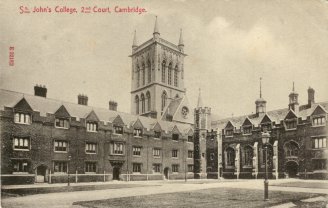|
The Rhodes and |
Introduction |
|
Many years ago an American secretary of state was asked to describe a group of terrorists, to which his immediate reply was, "They are certainly not Rhodes Scholars, are they!" Rhodes and Marshall scholars (and some day perhaps Gates and Mitchell scholars as well) indeed have a certain image -- well-rounded, outgoing academic young people (who I guess do not generally engage in terrorism) -- but that image is also one of otherness, of possessing a status which is unachievable. Sadly large numbers of people, Reedies among them, "self-select out" of the process, not realizing that these scholarships can be achieved and are in fact very useful in furthering their academic and life trajectories. In fact, a while back Henry Valk who was one of the longest serving Marshall selectors told me he thought Reed produces ideal students for an Oxbridge setting. Reedies are competent, thoughtful, outgoing and serious in scholarship. Yet not many of them even entertain the possibility of applying.
This website is intended to give you a general description and a set of concrete
strategies you can employ in developing an application for these scholarships
which offer an opportunity to continue one's education in the British Isles. These materials have
been derived from regional and national conferences on the Rhodes, Marshall and Gates
scholarships, from personal conversations with Rhodes, Marshall and Gates selectors,
from websites and from a bit of personal experience via Reed students and professors who have gone through the process, both successfully and not.
The Rhodes Scholarship
Established by the will of Cecil Rhodes, this highly competitive scholarship allows thirty-two students from the United States to join more than ninety Rhodes Scholar worldwide to study at an Oxford college for two to three years in pursuit of either a second undergraduate degree or (more commonly) an advanced degree such as a master's or PhD. It includes tuition, room, board as well as traveling expenses to and from the United Kingdom.
The Rhodes applicants are divided into sixteen districts with Reed College in District XIV which consists of Alaska, Idaho, Montana, Oregon, Washington and Wyoming. (Students may either apply through Oregon or their state of residency.) Previously there had been a state level of competition, the two winners of which going on to the district (final) level, but now all applications go directly to the district level where a pool of twelve to sixteen applicants is selected for interview, in our case usually going to Seattle for those meetings. No alternative scholars are selected, and no deferrals are permitted. For basic information, the Rhodes website itself is of course extremely useful.
The Marshall Scholarship
Established by an Act of Parliament in 1953 to commemorate the Marshall Plan, this much desired scholarship permits up to forty U.S. students to study at most any British institution for one, two or three years in pursuit of an advanced degree (but alas not a second undergraduate degree, which is a recent change). Like the Rhodes Scholarship, it includes tuition, room, board as well as as traveling expenses to and from the United Kingdom.The roughly twelve hundred Marshall applicants are divided into eight regions with Reed College in the San Fransisco Region which consists of Alaska, northern California, Idaho, Montana, most of Nevada, Oregon, Washington and Wyoming. (Students may either apply through Oregon or their state of residency.) Usually in early November, Marshall interviews of finalists are then conducted at those eight regional headquarters, the final selection announced shortly after the interview. Like that of the Rhodes, the Marshall website is both the source of all basic information and the vehicle through which applications are made.
↓ ↓ ↓
JUNIORS PLEASE NOTE: If you leave your application preparations until the beginning of the fall semester of your senior year, you will probably find the time too short for preparing a solid personal statement and soliciting the necessary letters although it could be done in a pinch. The internal interviews (which are necessary to secure institutional endorsements) happen during the first week or two of the semester. The Fellowships and Awards committee is here to help you, and personally I often help out students during the summer in their preparations. Furthermore while you can apply for these scholarships after you've graduated, that's not necessarily an advantage because the selectors take into consideration the fact that graduates have had more time to develop their track records compared to those who are still seniors. The selectors also recognize it's usually logical to make big academic course changes between one's undergraduate and graduate programs. So Juniors: Get cracking. You can always apply again if you were not successful the first time.
LINKS LINKS LINKS: To conclude this introduction, let me suggest that you never take the word of one individual (or one individual website) for anything. You are urged to check out the Fellowships & Awards websites of other colleges such as the following six which are members of the National Association for Fellowship Advisors:
- Baylor
- California Institute of Technology
- Columbia University (which will give you Powerpoint introductions)
- Kansas State Univeristy (which is famous for producing abnormally large numbers of winners)
- University of California - Berkeley
- University of Chicago (which will also give you links and descriptions of other scholarships in the British Isles)
Please let me know if you find any other good websites, both that of educational institutions but also any useful online tools and resources we might be able to utilize in developing good applications. Good luck, and I hope you find the following website useful.
St. John's College Second Court, Cambridge |
|
||

